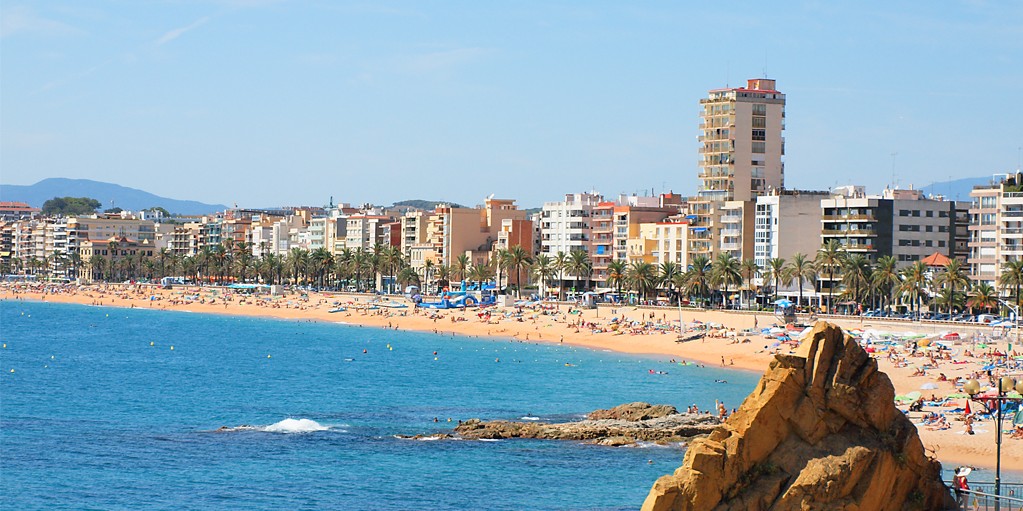
Set on the sunny Costa Brava, Lloret de Mar draws sunseekers, students and families with its lively beaches, blue Mediterranean waters, and reputation for resort life. With a full-time population of just over 40,000 people, it’s a fairly small town, but summer brings a huge influx of holidaymakers from across Europe, giving the place a much larger feel for much of the year. Living in Lloret de Mar means long sandy stretches, rocky coves for snorkelling, and pine-covered hills rising just behind town. While Lloret is best known for its buzzing nightlife, there’s much more than meets the eye if you’re thinking about living here long-term.
Is Lloret de Mar a nice place to live?
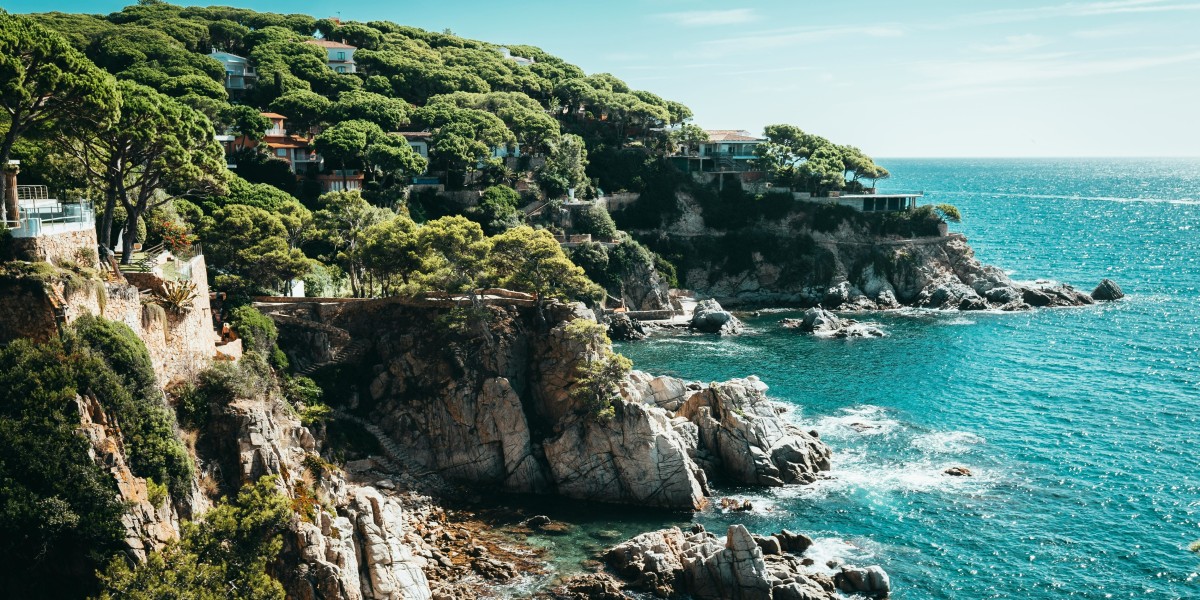
There’s no denying Lloret’s holiday-heavy reputation, but peel back a layer or two and you’ll find a friendly Catalan community, easy-going locals, and all the essentials for day-to-day living. There's no doubt that life on the Costa Blanca will guide you here, one way or another.
You’re never far from the sea, and the microclimate means plenty of sunny days. Out of season, things are much quieter and you get to enjoy the old town, weekly markets and the wild coastal walks without competing with crowds. This can be said about the neighbouring fishing town of Tossa de Mar, where life is generally more chilled year-round.
Housing is a mix of older flats, new-builds and holiday apartments, so there’s a fair range, whether you’re after a home right in town or in a quieter residential area. Dining isn’t all chips and beer, either—you’ll get local seafood in rustic chiringuitos, traditional Catalan dishes, and enough tapas bars to keep life interesting. Just be prepared: the nightlife can be intense in July and August, and the seasons shape daily rhythms more than in a city.
Is Lloret de Mar safe?
Generally, Lloret is pretty safe, especially outside the dizzy height of tourist season. Like many coastal resort towns, it’s wise to be a bit more watchful during the summer, when pickpocketing and the occasional rowdy crowd or scam can be a nuisance late at night in bar areas.
Residents tend to know each other, and local police are visible and used to managing busy summers. Day-to-day life out of season is low-key and calm, and families stroll the promenade or nearby woods worry-free.
Living in Lloret de Mar: pros and cons
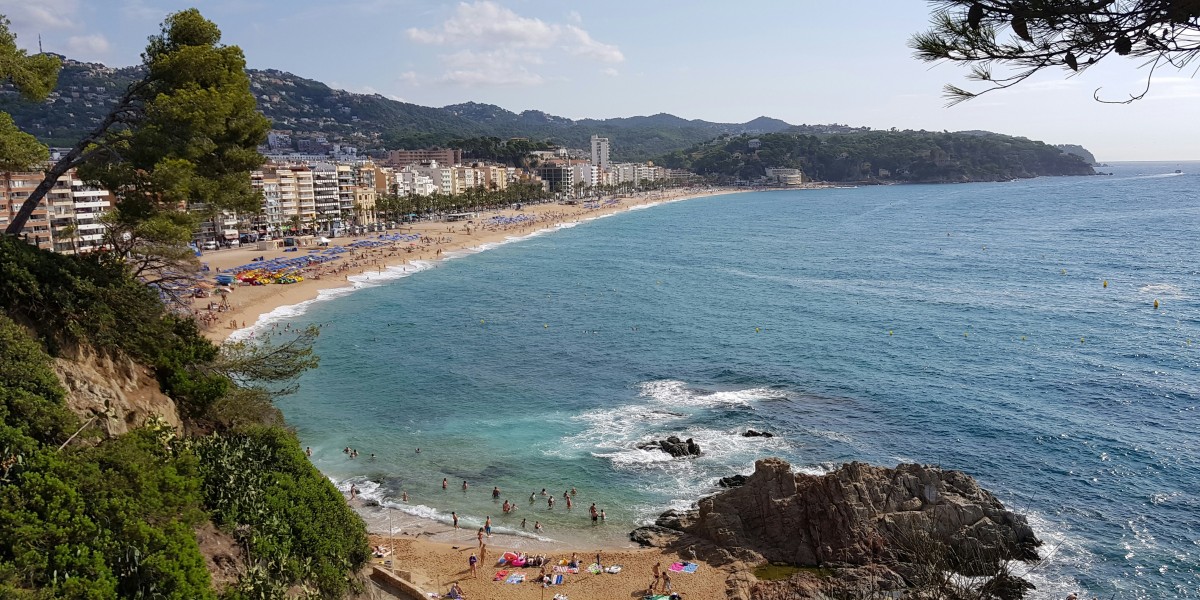
Lloret de Mar isn’t shy about showing its true colours, and life here comes with plenty of high points as well as a few quirks to be aware of.
Some of the pros of life in Lloret de Mar include:
- Easy coastal lifestyle and access to beautiful Mediterranean beaches right on your doorstep.
- Lower costs compared to bigger cities, especially for rent, dining out and daily shopping.
- Friendly, international community—plenty of chances to meet people from across Europe, plus good English spoken in businesses and around town.
A couple of cons to bear in mind:
- Town becomes extremely crowded in high season, with noise, late-night revellers and higher prices all part of the deal for a few months.
- The job market outside of tourism is fairly limited, which can be a challenge if you want to work in sectors beyond hospitality, retail or real estate.
For many, the balance swings in favour of sunny days, sea views and friendly faces—but if you’re not a fan of tourism-driven rhythms, life by the beach could feel a touch hectic at times.
Is it expensive in Lloret de Mar?
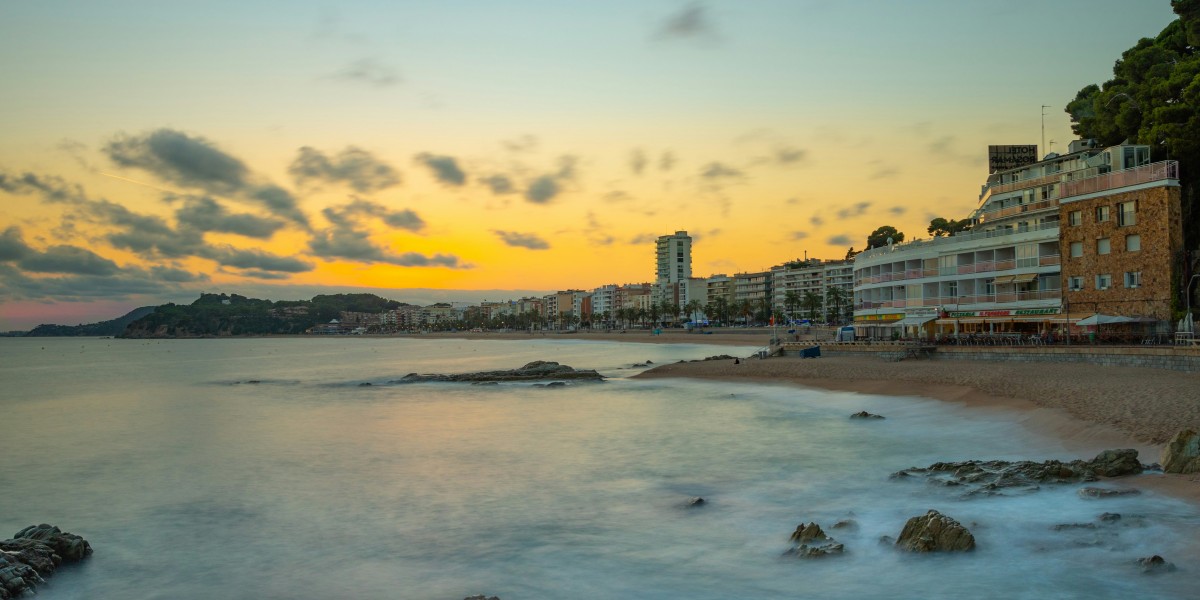
Life in this fishing town comes with plenty of perks on the wallet, especially compared to the bigger Spanish cities. However, the cost of living in Lloret de Mar can be a little high, especially during the summer.
As of April 2025, property prices in Lloret de Mar averaged around €2,385 per m², with rent prices coming in at an average of €13.3 per m². This means an 80m2 apartment will set you back around €1,064 per month, a fair bit less than in Barcelona. However, rental prices may vary depending on the season, and you'll find it hard to get even a studio flat for less than €1,000 per month for short-term rental.
Eating out is budget-friendly, with local menú del día lunches under €15 easy to find. A meal for two in an inexpensive restaurant will cost you around €50 on average, although this can vary. Decent Spanish beer is cheap, around €2-€4, and coffees won’t leave a dent in your pocket either. Groceries may cost a touch more in high summer, but utilities and household services are generally in line with the Spanish average.
- Property for sale in Lloret de Mar
- Long-term rentals in Lloret de Mar
- Holiday rentals in Lloret de Mar
Nightlife in Lloret de Mar

If you’re after lively nights, Lloret de Mar certainly delivers. It has a reputation built on big clubs, cheerful beach bars, and plenty of late finishes. In summer, the resort buzzes with energy, drawing in partygoers from across Europe, so don’t be surprised if the town feels awake well past dawn. It all kicks off around 10pm, when bars in the old town and along the beachfront fill up with a mix of locals and holidaymakers looking for cocktails, live music, or a cold jug of sangria. High season means almost every spot is open until the early hours, and the main streets—Avinguda Just Marlés in particular—become a parade of late-night revellers, street performers and open-air terraces.
You’ll find main nightlife venues like Disco Tropics, a huge, neon-lit venue with four music halls—think EDM, reggaeton and themed foam parties that go strong until 6am most weekends. Nearby Colossos is another favourite for all-nighters, dishing out international DJs and a proper clubbing experience, while Revolution has a reputation for student nights and lively beer pong tournaments. Those who prefer a laid-back vibe might favour beach bar Cala Banys, perched on a rocky outcrop above the sea, where you can nurse a gin and tonic surrounded by pine trees and Mediterranean views. And if live music in Tossa de Mar is what you're looking for,, keep an eye on local pubs like Rockefellers or Londoner, which host regular indie, rock and tribute bands, especially on Fridays and Saturdays.
Living in Lloret de Mar as an expat
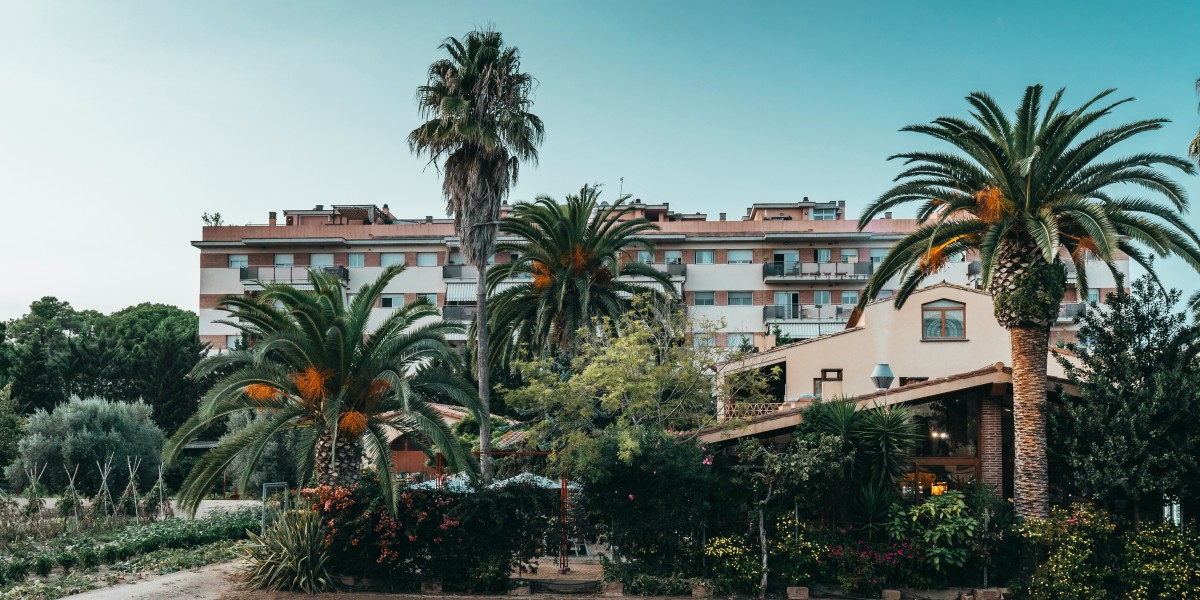
Expats in Lloret come in all stripes: some work remotely, others run small businesses or retire to the sun. The British community is noticeable (especially in summer), but you’ll also meet French, Dutch, Germans and a fair number of Latin Americans. While Lloret once had a reputation for being “full of Brits,” the year-round resident mix is much more varied, with local Catalan families and a growing number of international residents. English is widely spoken in the tourist trade, so settling in is less daunting, and there are several Facebook groups and meetup events for newcomers, particularly from the UK and Ireland.
If you’re planning on working, Spanish or Catalan skills go a long way for anything outside tourism, and joining the town’s midsize expat community can make life a little less insular. There aren’t many international schools right in town, but Girona and Barcelona expand schooling options.
To sum up, Lloret de Mar has carved a niche for itself that won’t be for everyone—it’s spirited and tourist-driven, but there are perks galore for anyone looking for a balance between sunny coastal living and easygoing daily life. The cost of living in Lloret de Mar is manageable, the town is generally quite safe, and music, both lively and laid-back, is never far off.
Living in Lloret vs Barcelona
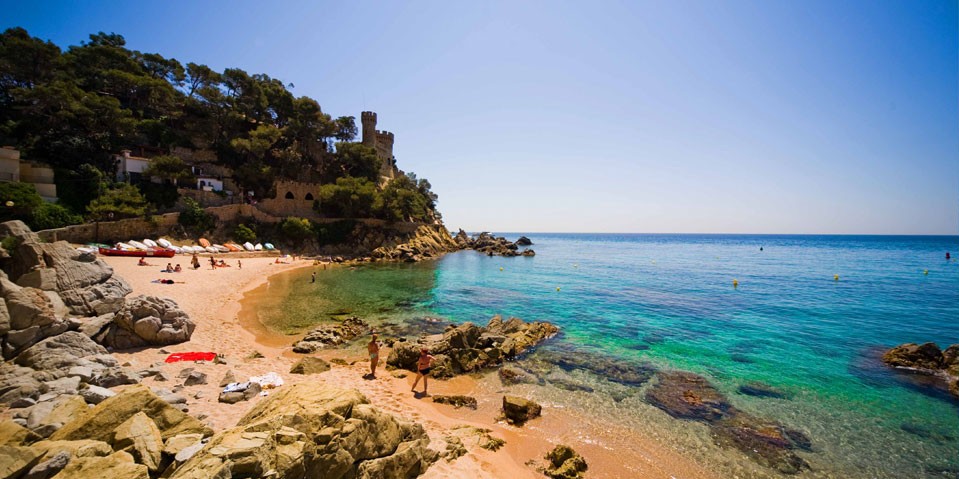
Barcelona and Lloret de Mar couldn’t be more different day-to-day. Barcelona offers city life, ambitious careers, world-class museums, and cosmopolitan buzz, but it’s busier, pricier, and less relaxed.
Lloret, on the other hand, is much slower-paced the rest of the year, has a high dose of resort life, and you’ll need to travel for big-city events or shopping. You can get to Barcelona by bus or car in about 75 minutes, so it's not too tricky.
If you want big culture, diverse work options and expat groups, Barcelona’s your bet. If you’d rather swap long commutes for a daily swim and enjoy a more touristy—but laid-back—ambience, Lloret may suit you well.
